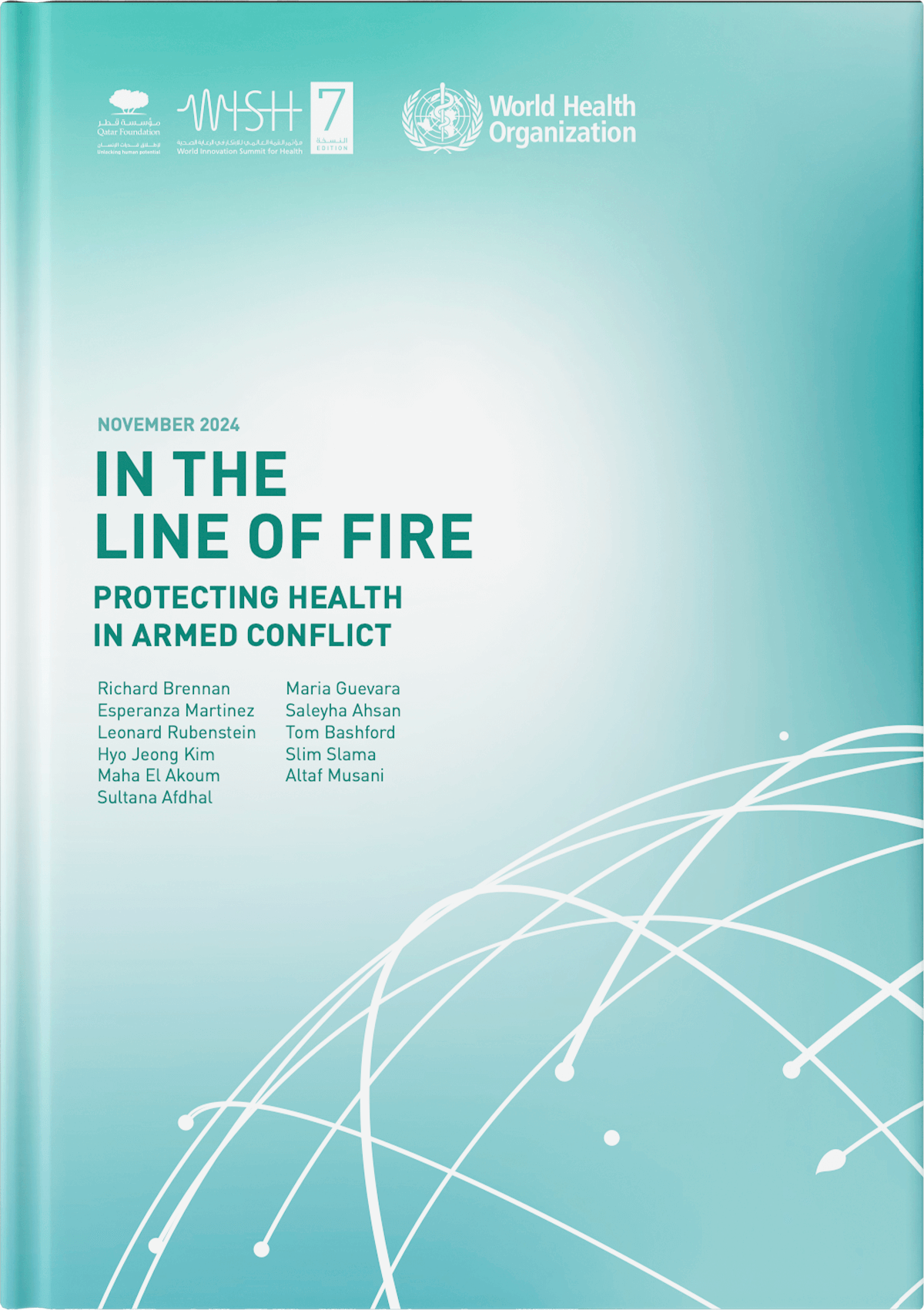
The imperative to protect healthcare in conflict settings is enshrined in international humanitarian law, enacted through humanitarian principles such as the distinction between civilians and combatants, the concept of necessity, the proportionality of harm to civilians in relation to military advantage, impartiality and humanity. These principles ensure that medical personnel, facilities and transports are safeguarded, and provide care without discrimination. Despite these legal protections, there has been an alarming rise in attacks against healthcare, representing grave violations of human rights and international humanitarian law. Hospitals, clinics and ambulances are frequently bombed, looted or significantly hampered from the delivery of essential medical services. Healthcare workers have been assaulted, blocked from administering care and sometimes killed. These assaults severely disrupt vital health services, leaving vulnerable populations without essential care, with catastrophic effects on public health, health workers and healthcare facilities. The central question this report seeks to address is how do we reset the balance and reaffirm the way forward to uphold the fundamental tenets of IHL, press for greater action to end impunity and foster greater political support to create structures that will ensure the protection of health systems and civilians during war. Key challenges discussed include: 1. Trends in global conflict that highlight the scale and nature of attacks and its effect on population health. 2. Protective mechanisms for the delivery of healthcare in armed conflict that set out existing legal frameworks and accountability and the context of IHL. 3. Building resilience and preparedness through capacity building, exploring protective measures through adaptive design, engaging more effectively with armed forces and non-state actors, fostering greater community engagement and education and the challenges presented by the lack of standardized data collection. There is no single actor, government or organization that can overcome these challenges. As a result, this report presents a series of priority recommendations addressed to the full range of stakeholders who have the capacity to prevent and mitigate attacks on health. These recommendations rely on the renewed hope that UN agencies, civil society groups and governments are increasingly beginning to speak more forcefully against the IHL violations occurring in conflicts around the world. We must capitalize on the momentum this has created and push forward with the steps outlined in the report to compel civil society, government and UN agencies to act now to end the suffering of millions around the world.

Dr. Richard Brennan, MBBS, MPH
Rick Brennan is Regional Emergency Director for the World Health Organization’s (WHO) Eastern Mediterranean Regional Office based in Cairo, Egypt. He oversees WHO’s support to 22 countries for emergency preparedness, detection, and response, including major humanitarian crises, disease outbreaks, the COVID-19 pandemic, natural disasters, and technological emergencies. Most recently his team has been supporting country responses to the crises in Gaza, Sudan, Lebanon, and Yemen, while also tackling outbreaks of cholera, dengue, and mpox. Previously, Rick spent seven years at WHO headquarters, where he was the Director of Emergency Operations, Director of Ebola Response and Coordination, and Director of Humanitarian Response. He played central roles in establishing the Surveillance System for Attacks on Health Care, the Global Health Cluster Unit, and the Emergency Medical Teams Initiative. Rick has extensive experience in emergencies in over 40 countries across Africa, Asia, Eastern Europe and the Middle East. He received his medical degree from the University of Sydney, completed emergency medicine training in Australia, and received a Master of Public Health from Johns Hopkins University. Following 12 years of clinical work, Rick joined the United States Centers for Disease Control and Prevention focusing on humanitarian and emergency management issues. Thereafter, he spent 10 years as Health Director of the International Rescue Committee in New York, overseeing global humanitarian health operations. Prior to joining WHO in 2012, he led a large post-conflict health system support project in Liberia for JSI Research and Training. Rick has made several important contributions to advance global health emergency preparedness and response, including leading the development of WHO’s Emergency Response Framework.
